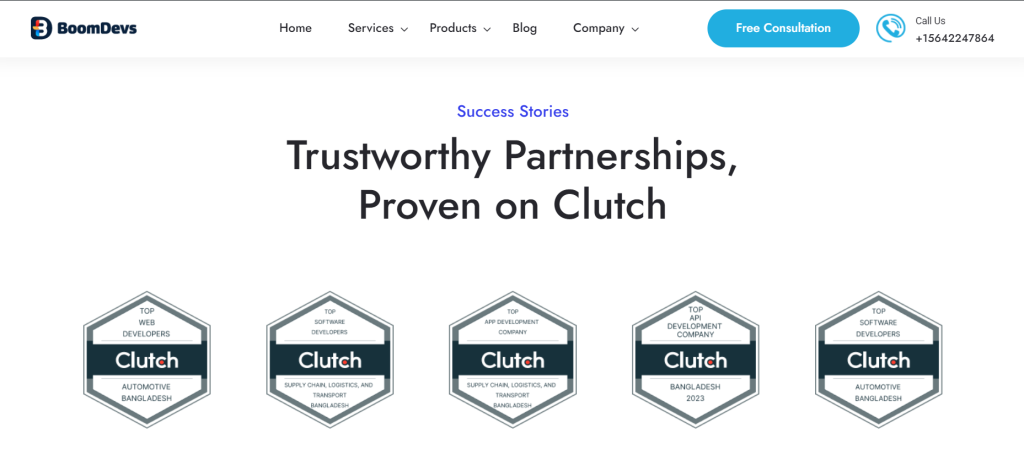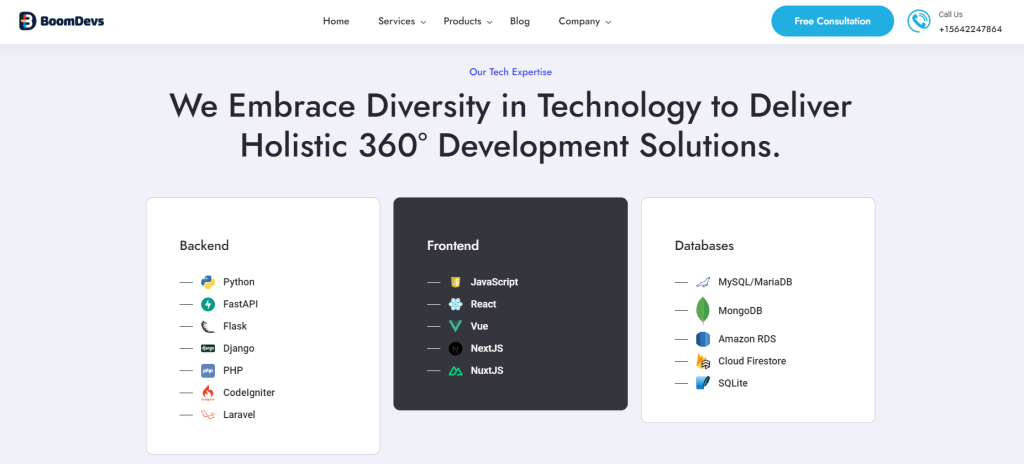Fintech Development Outsourcing: Key Considerations And Effective Strategies In 2024
As we navigate the intricate world of fintech development outsourcing in 2024, it’s essential to consider the key elements and strategies that ensure success. This exploration offers a roadmap for companies looking to integrate fintech solutions seamlessly, focusing on the crucial aspects of outsourcing in the fintech industry. We delve into effective methodologies, highlighting the balance between innovation, cost-effectiveness, and quality, crucial for thriving in the rapidly evolving financial technology sector.
What Is Fintech Development Outsourcing?
Fintech development outsourcing refers to the practice where financial technology companies hire external firms to handle various aspects of their software development needs. This can include tasks like building new apps, creating online payment systems, developing blockchain technology, or improving existing digital banking services. The idea is to utilize the expertise of specialized tech companies, often in different countries, to benefit from cost efficiencies, gain access to a global talent pool, and focus on core business strategies while the outsourced team handles the technical development work. This approach can help fintech companies accelerate growth, innovate faster, and manage resources more effectively.
What Is Fintech BPO?
Fintech BPO, short for Financial Technology Business Process Outsourcing, is when a company that works in the financial technology sector (like digital banking, online payments, or cryptocurrency services) hires another company to handle some of its work. This work could be anything from customer service, processing transactions, and managing data, to more technical stuff like software development or maintenance.
Deep Dive Into Different Outsourcing Approaches
Explore the various strategies in fintech development outsourcing and understand how they can revolutionize the financial technology landscape. This deep dive will unveil the key approaches and their impacts in the world of fintech.
Based on Function:
1. Business Process Outsourcing (BPO):
This is the most classic form of outsourcing, involving delegating non-core, repetitive business processes to external vendors. Examples include:
- Accounting and bookkeeping: Managing your financial records like accounts payable/receivable, payroll, and financial reporting.
- Customer service: Handling customer inquiries, providing support, and resolving issues across various channels (phone, email, chat).
- Human resources: Payroll processing, benefits administration, recruitment, and employee onboarding.
- Data entry and processing: Managing large volumes of data like transaction records, customer information, or market research data.
Benefits: Cost savings through lower labor costs, access to specialized skills, improved efficiency, and freeing up internal resources for core activities.
Considerations: Data security, quality control measures, potential communication barriers, and cultural barriers.
2. IT Outsourcing:
This involves delegating IT tasks and functions to external providers, allowing you to focus on your core business objectives. Examples include:
- Software development and maintenance: Building, customizing, and maintaining software applications, websites, and mobile apps.
- Network infrastructure management: Managing your network hardware, software, and security, ensuring its stability and performance.
- Cloud computing services: Migrating your data and applications to the cloud for improved scalability and cost efficiency.
- IT support and helpdesk: Providing technical assistance to your employees for troubleshooting software issues, hardware problems, and network connectivity issues.
Benefits: Access to specialized IT expertise, cost savings on IT infrastructure and staffing, quicker access to innovative technologies, and improved efficiency.
Considerations: Data security and privacy concerns, potential service quality issues, vendor lock-in, and potential communication challenges.
3. Manufacturing Outsourcing:
This involves contracting with external manufacturers to produce your products, often taking advantage of lower labor costs or specialized skills in specific regions. Examples include:
- Garment manufacturing: Outsourcing apparel production to countries like Bangladesh or Vietnam.
- Electronics manufacturing: Contracting with Chinese factories for producing smartphones, computers, or other electronic devices.
- Auto parts manufacturing: Outsourcing specific car parts to specialized manufacturers in various locations.
Benefits: Reduced production costs, access to advanced manufacturing capabilities, increased product flexibility, and faster time-to-market.
Considerations: Quality control challenges, intellectual property concerns, dependence on external supply chains, and potential ethical or environmental issues in certain countries.
4. Project Outsourcing:
This involves hiring external experts or teams to handle specific projects with defined timelines and deliverables. This can be beneficial for tasks requiring specialized skills, a limited budget, or temporary support. Examples include:
- Marketing campaign development: Outsourcing the creation and execution of a marketing campaign, including design, content creation, social media management, and analytics.
- Website development: Hiring a web development team to build your company website, e-commerce platform, or online application.
- Product design and development: Contracting with a design agency or engineering team to develop a new product concept, prototype, or final product.
Benefits: Access to specific expertise for short-term needs, accelerated project completion, cost-effectiveness for specialized tasks, and reduced internal resource allocation.
Considerations: Clear project scope and deliverables, effective communication and collaboration with the outsourced team, managing project risks and potential quality issues.
Based on Location:
1. Offshoring:
This involves outsourcing tasks or functions to a geographically distant country, typically with lower labor costs or specialized skills. Popular destinations include India, China, the Philippines, and Eastern Europe. Examples include:
- Offshoring customer service centers to provide 24/7 support at lower costs.
- Outsourcing software development to access a larger pool of developers at competitive rates.
- Manufacturing products in countries with established production facilities and skilled labor.
Benefits: Significant cost savings, access to a wider talent pool, and potential for faster execution with extended working hours.
Considerations: Time zone differences and communication challenges, cultural differences impacting collaboration, data security and privacy concerns, and potential intellectual property risks.
2. Nearshoring:
This involves outsourcing tasks or functions to a neighboring country within the same region or continent, balancing cost savings with cultural and language proximity. Examples include:
- Nearshoring customer service to a nearby country for improved cultural understanding and language fluency.
- Outsourcing IT support to a neighboring country for quicker response times and closer collaboration.
- Manufacturing products in a geographically closer country for faster delivery times and easier quality control.
Benefits: Reduced communication and cultural barriers, improved responsiveness and collaboration, shorter delivery times and better logistics, less time zone difference, and work schedule alignment.
Considerations: Slightly higher costs compared to offshoring; potentially smaller talent pool compared to major outsourcing destinations; similar data security and privacy concerns as with offshoring.
3. Onshoring:
This involves outsourcing tasks or functions within your own country. This is often chosen for security or quality control reasons, or to support local businesses and communities. Examples include:
- Onshoring data management and server hosting to ensure control over sensitive data and comply with regulations.
- Outsourcing manufacturing to local suppliers for improved quality control and faster response times.
- Hiring local agencies for marketing and advertising campaigns to leverage market knowledge and cultural insights.
Benefits: Improved data security and privacy control, closer collaboration and communication, faster response times and reduced logistics challenges, potential positive impact on local economy and employment.
Considerations: Potentially higher costs compared to offshoring or nearshoring, limited access to specialized skills depending on location, increased reliance on local talent pool and potential competition.
Based on Specificity:
1. Professional Outsourcing:
- This involves hiring individual experts or firms for specific professional services outside your core business expertise. Examples include:
- Legal services: Contracting with lawyers for legal advice, contract drafting, litigation support, or intellectual property issues.
- Accounting services: Outsourcing tax preparation, auditing, financial planning, or payroll management.
- Marketing and advertising services: Hiring agencies for branding, campaign development, media buying, or social media management.
- Consulting services: Bringing in consultants for expertise in specific areas like business strategy, human resources, technology implementation, or operational efficiency.
- Benefits: Access to highly specialized expertise, cost-effective for specific needs, no need to hire full-time professionals, focus on core competencies.
- Considerations: Finding the right professional or firm with relevant experience and skills, managing project scope and deliverables, potentially higher costs compared to internal resources.
2. Process-Specific Outsourcing:
This focuses on delegating specialized services within a broader function, offering deeper expertise and efficiency in specific areas. Examples include:
- Knowledge process outsourcing (KPO): Outsourcing research, data analysis, market research, or technical writing tasks.
- Legal process outsourcing (LPO): Delegating legal document review, e-discovery, contract management, or paralegal services.
- Recruitment process outsourcing (RPO): Hiring an agency for talent acquisition, candidate sourcing, screening, and interview coordination.
- Financial process outsourcing (FPO): Outsourcing accounts payable/receivable processing, invoice management, or financial reporting tasks.
Benefits: Access to niche expertise and advanced technologies, improved process efficiency and accuracy, reduced operational costs, scalability for fluctuating workloads.
Considerations: Choosing a reliable provider with robust security measures, maintaining clear communication and data governance, and potential challenges in integrating outsourced processes with internal systems.
Other Outsourcing Options:
1. Multisourcing:
This strategy combines different types of outsourcing, like offshoring routine tasks and onshoring critical functions, balancing cost savings with control and expertise.
Benefits: Flexibility to leverage different strengths of various outsourcing models, optimize cost and quality based on task requirements, and access wider talent pool and skillsets.
Considerations: Increased complexity in managing multiple vendors, ensuring compatibility and seamless integration between outsourced services.
2. Operational Outsourcing:
This involves delegating non-core operational functions like logistics, facilities management, security, or catering to specialized providers.
Benefits: Improved operational efficiency and cost optimization, increased focus on core activities, and access to specialized expertise and resources.
Considerations: Careful vendor selection and contract terms, ensuring quality control and performance standards, potential dependence on external providers for critical operations.
Outsourcing Software Development: Key Considerations And Effective Strategies
Discover the critical aspects and effective tactics for fintech development outsourcing, a strategic move for businesses aiming to enhance their financial technology capabilities. This exploration focuses on the essential considerations for successful software development outsourcing in the fintech industry.
Understanding Different Models And Their Impacts
When looking at different ways to outsource work, like hiring teams from other countries (offshore), creating dedicated teams, adding temporary staff (staff augmentation), agreeing on a set price or paying based on time and materials used, and using a mix of these methods (hybrid), each option has its own good and bad points. For instance, hiring teams from other countries can be cheaper and give you a wider range of skills, but you might face issues with communicating and time differences. Having a dedicated team can be great for working closely over a long time and getting a team that fits your needs, but it can be expensive and take a lot of effort to manage.
Essential Factors in Picking a Software Development Company
When choosing a company for your software development needs, think about the size of the company, how much experience they have, their ability to handle technical challenges, and how much they know about your specific business area. Make sure they have the right resources and know-how to take on your project and understand the needs of your industry. Having early meetings and in-depth talks about what you want to achieve with your software and what it needs to do is really important.
Contract Creation and Initial Steps in Software Development
When setting up a contract with a software development firm, it’s important to cover some key points in a smart yet straightforward way. Make sure the contract clearly states the timeline for the project, who will own the software after it’s built, how the data will be kept safe, methods for checking the quality of the software, main goals, and how to measure the project’s success, the cost of the project, and any critical legal points. Once the contract is signed by everyone, it’s smart to have an initial meeting. This first meeting is crucial to make sure that everyone has the same understanding of what needs to be done and to lay out a detailed plan for the project.
Focus on Scalability
When you’re picking a software development company, it’s really important to look for one that can easily adjust its team size based on your project’s needs. This means they should be able to handle both increasing and decreasing the number of developers working on your project as things change. This kind of flexibility is key because it lets you scale your team up when you need more hands on deck and scale down when you need to streamline, all throughout the development process. This approach helps ensure that you have just the right amount of resources at every stage of your project.
Focus on Quality, Security, and Legalities
In fintech development outsourcing, you need to be sure that the software they create meets high-quality standards. This means it should work well and be free of major bugs. Secondly, because you might be sharing sensitive information with this firm, they must have strong security measures to keep your data safe.
It’s super important to look closely at the contract before you sign it. Pay special attention to who owns the rights to the software once it’s made and what happens if something goes wrong (like if there are errors in the software). This part of the contract will tell you what responsibilities the firm has and what they might be liable for. In short, taking the time to check these things will help make sure your software project is successful and secure.
Cost Considerations in Fintech Development Outsourcing
In the age of digitization, fintech has become a booming industry, constantly innovating and pushing boundaries. However, building cutting-edge financial technology comes with its own set of challenges, particularly budget constraints. Outsourcing development tasks can potentially offer cost savings and access to specialized expertise, but it’s not a blanket solution. Let’s dive into the specific cost considerations you should weigh before taking the plunge into fintech development outsourcing.
Factors Influencing Cost
Project Complexity: Simple mobile wallets will naturally cost less than intricate blockchain-powered trading platforms. The more complex the features and functionalities, the higher the development cost.
Development Team Location: Hourly rates for developers vary drastically depending on their location. Offshore outsourcing in Eastern Europe or Southeast Asia can be significantly cheaper than hiring in-house teams in developed countries.
Tech Stack & Team Composition: The chosen programming languages, frameworks, and APIs can impact cost. Experienced full-stack developers cost more than specialized front-end or back-end developers.
Project Management & Communication: Ensuring smooth communication and efficient project management adds additional costs, either through internal staff or dedicated project managers.
Beyond Hourly Rates: Hidden Costs to Consider
Transition Costs: Shifting processes and training outsourced teams require dedicated effort and potential temporary resource duplication, leading to initial cost spikes.
Quality Control & Security: Maintaining high-quality standards and robust security measures for sensitive financial data adds overhead, necessitating additional testing and auditing.
Intellectual Property: Protecting sensitive financial algorithms and data during development requires careful contractual agreements and potential technology licensing fees.
Communication & Cultural Differences: Working with teams in different time zones or with cultural differences can lead to miscommunication, delays, and reworks, ultimately driving up costs.
Do You Want To Start A Fintech Development Outsourcing Business?
Do you want to run a business that offers flexibility, allowing you to work from anywhere? The key highlight is that you don’t necessarily need extensive time, skills, or money to make it work. Outsourcing is a smart way to run your business. Instead of doing all the work by yourself, consider finding skilled individuals to do the work for you. When a client needs a service, connect with someone talented in that area, charge the client a bit more than what you pay the skilled worker, and keep the difference. This approach allows you to receive payment from the client upfront, ensuring a steady cash flow. Plus, you won’t have to invest a lot of time to learn the skill and a large sum of money initially, making your business more manageable. The advantage lies in scalability and the ability to focus on acquiring clients while a team handles the tasks.
Skills Required for Success
For fintech development outsourcing., foundational skills such as persuasion, sales, marketing, and effective communication are crucial for success in any business, including outsourcing. Technical skills can be outsourced, but these essential skills are necessary. There are diverse opportunities in the outsourcing model. It’s not restricted to specific industries, like web development or marketing. Identify problems in your areas of expertise and offer solutions by outsourcing tasks. This way, you can explore a wide range of fields and tailor outsourcing to fit your specific skills and interests.
How To Start?
The initial focus should be on addressing clients’ problems rather than getting caught up in setting up a website or designing business cards. Start by providing solutions, and don’t hesitate to offer your services for free or at a discounted rate initially. This approach not only helps you build confidence but also allows you to gather testimonials and reviews. Before investing time and money in branding, these positive reviews serve as proof that your business model works and is valuable to clients. This step-by-step approach ensures that you establish a solid foundation before diving into broader branding efforts.
Finding Affordable Virtual Assistants for Your Business: A Step-by-Step Guide
Today, we’ll delve into the process of discovering cost-effective virtual assistants (VAs). Not only fintech development outsourcing, but also can be applied across various businesses. Outsourcing key aspects of your business can help you reclaim your time, prevent burnout, and provide the freedom to explore new opportunities and innovations. This extra time is vital for identifying weaknesses in your business, enhancing them, and staying ahead of competitors.
Identifying Tasks for Outsourcing
Begin by recognizing the tasks that cannot be outsourced, which you must handle personally. Then, identify areas that can be automated, systematized, or outsourced. The key is not to outsource everything at once but to start with the most straightforward tasks. Managing employees, even virtual assistants, is a skill set you’ll learn gradually. Begin slowly, and you can always scale up later.
Where to Find Virtual Assistants?
Various platforms offer virtual assistant services. Explore Facebook groups, Fiverr, Freelancer, Upwork, and a preferred site, OnlineJobs.ph. This platform allows you to find skilled VAs for various tasks, often at a low cost, such as $2 per hour.
Creating a Job Posting and Hiring
Once you’ve identified a task to outsource, create a clear job posting summarizing what you’re looking for. Platforms like OnlineJobs.ph enable you to connect with qualified individuals who respond with their qualifications. Test potential candidates on a small scale before considering a long-term partnership.
Training Your Virtual Assistant
Efficient training is crucial. Use screen recordings to show step-by-step processes for the tasks you want them to perform. Building a systematic approach allows you to hire individuals with varying skill levels to implement your processes effectively.
Communication and Payment
Ensure seamless communication and payment methods. WhatsApp is recommended for communication, while PayPal is widely used for payments. For countries not integrated with PayPal, Western Union can be a suitable alternative.
Examples of Outsourced Tasks
Tasks that can be outsourced include listing on different platforms, product research, order fulfillment, video editing, graphic design, customer service, and more. Learning how to outsource efficiently benefits any business, not just eCommerce.
Personal Experience and Business Growth:The speaker shares a personal turning point when hiring the first VA significantly improved business efficiency. Despite having to manage and pay multiple VAs, it was the most profitable year due to reclaimed time. This time was used to learn new skills, explore additional platforms, and focus on business innovation.
Striking the Golden Triangle: Balancing Innovation, Cost-Effectiveness, and Quality
In today’s dynamic landscape, achieving success requires a delicate balance between three critical factors: innovation, cost-effectiveness, and quality. Finding the perfect balance between these seemingly disparate elements is akin to navigating a golden triangle, where each vertex holds immense importance, and neglecting anyone can lead to instability or even collapse.
Innovation as the Driver
Innovation serves as the engine of progress, propelling us towards novel solutions and improved outcomes. It fosters creativity, challenges established norms, and unlocks new possibilities. Whether it’s pioneering a revolutionary technology, developing a disruptive business model, or streamlining existing processes, innovation injects a vital dose of dynamism into any endeavor.
However, innovation without a guiding compass can be costly and unsustainable. Chasing the latest trends or throwing resources at unproven ideas can quickly drain budgets and yield minimal results. Therefore, it’s crucial to align innovation with strategic goals and ensure it addresses real-world needs.
Cost-Effectiveness: Keeping an Eye on the Bottom Line
In fintech development outsourcing, cost-effectiveness doesn’t equate to mere frugality; it’s about maximizing value with available resources. It involves optimizing processes, identifying cost-saving opportunities, and making informed spending decisions. In today’s competitive environment, where margins are thin and pressure is constant, maintaining cost-effectiveness is essential for long-term viability.
However, slashing costs indiscriminately can have detrimental consequences. Compromising on quality or essential resources in the name of cost-saving can backfire, leading to inefficiencies, rework, and ultimately, damage to reputation and customer loyalty.
Quality: The Bedrock of Trust
Quality is the foundation of fintech development outsourcing. It encompasses the excellence of products, services, and processes, ensuring they meet or exceed expectations. Delivering high-quality work fosters trust, builds customer loyalty, and differentiates you from the competition.
However, an unwavering focus on quality can sometimes lead to inflexibility and missed opportunities. Over-engineering solutions or adhering to rigid standards can stifle innovation and increase costs. Striking the right balance between maintaining high standards and embracing flexibility is crucial for thriving in a changing environment.
Navigating the Golden Triangle
Finding the sweet spot between innovation, cost-effectiveness, and quality requires a multifaceted approach. Here are some key strategies:
- Strategic Alignment: Ensure all three elements are aligned with your overall goals and objectives.
- Data-Driven Decision-Making: Leverage data and analytics to inform investment decisions, track progress, and identify areas for improvement.
- Collaboration and Communication: Foster cross-functional collaboration and open communication to break down silos and encourage creative solutions.
- Embrace Agility: Be adaptable and willing to adjust your approach based on changing circumstances and market demands.
- Measure and Iterate: Continuously monitor progress, measure outcomes, and iterate on your strategies to optimize the balance.
Weighing the Scales: Pros and Cons of Outsourcing
Fintech development outsourcing, entrusting tasks to external providers, can be a potent business tool, but it’s not a one-size-fits-all solution. Before diving in, consider the following pros and cons to find the right fit for your needs:
Pros
Cost savings: Accessing lower labor costs, reduced infrastructure expenses, and avoiding benefits and training costs associated with full-time employees.
Increased efficiency: Freeing up internal resources for core tasks, improved focus on areas of expertise, and potential access to specialized skills and technologies.
Greater scalability: Ability to quickly ramp up or down resources based on project needs or business fluctuations without incurring heavy hiring or firing costs.
Access to specialized expertise: Tapping into niche talents and skills not readily available within your organization, boosting innovation and project success.
Improved productivity: Leveraging the expertise and streamlined processes of established outsourcing providers, potentially leading to higher output and faster turnaround times.
Global reach: Expanding your operational capabilities to new markets and time zones, increasing customer reach and potential revenue.
Enhanced focus: Allowing your team to concentrate on core strengths and strategic initiatives by offloading non-essential tasks.
Risk mitigation: Transferring certain risks, like data security or intellectual property concerns, to the external provider.
Cons
Loss of control: Reduced direct oversight of outsourced tasks, potentially creating challenges in ensuring quality control and consistency with internal standards.
Communication and collaboration challenges: Time zone differences, cultural barriers, and language gaps can hinder effective communication and collaboration.
Potential security and privacy risks: Sharing sensitive data with external providers necessitates robust security measures and data governance strategies to prevent breaches.
Vendor lock-in: Dependence on a specific provider can increase costs and complexity when transitioning to a new vendor later.
Hidden costs: Additional training, project management, and integration expenses might offset some of the initial cost savings.
Ethical considerations: Outsourcing to countries with low labor standards or poor working conditions raises ethical concerns about exploitation and fairness.
Reduced job security: Internal employees might feel job insecurity due to potential outsourcing of their responsibilities.Loss of institutional knowledge: Outsourcing critical tasks can lead to a loss of valuable internal knowledge and expertise within your organization.
BoomDevs: Your Trustworthy Partner for Outsourcing Success

Finding the right partner for fintech development outsourcing can be difficult. Look no further than BoomDevs, a comprehensive web, and mobile development agency ready to become your one-stop shop for outsourcing excellence. Here’s why BoomDevs can be your best choice:
Value Proposition
Expertise Across the Board: BoomDevs offers a full spectrum of services, from web and mobile development to UI/UX design and product development consultancy. No matter your needs, their team of skilled professionals has the expertise to deliver exceptional results.
Proven Track Record: With over a decade of experience and a portfolio boasting successful projects for small and medium-sized enterprises, BoomDevs has a proven track record of taking business visions to reality.
Tailored Solutions: We understand that every business is unique and tailor their approach to fit your specific goals, budget, and timeline.
Cost-Effectiveness: Outsourcing with BoomDevs can offer significant cost savings compared to hiring and managing an in-house team, freeing up your resources for other crucial areas.
Global Reach: Our presence in multiple countries allows them to leverage diverse talent pools and offer competitive rates while ensuring smooth communication and collaboration.
Focus on Innovation: BoomDevs embraces cutting-edge technologies and stays ahead of the curve, ensuring your project is built with the future in mind.
Transparency and Trust: Clear communication, regular updates, and open collaboration are at the core of their work ethic, building trust and confidence throughout the process.
We bring 10 years of expertise to the table!
Our seasoned experience in delivering top-notch outsourcing solutions sets us apart in the industry.
What Makes BoomDevs Valuable?

Dedicated Partners: You’re not just a client – you’re a partner. BoomDevs invests in understanding your business and becomes an extension of your team, working alongside you to achieve your goals.
Quality Guarantee: We stand behind our work with a commitment to quality and strive for complete client satisfaction. Our dedicated QA team ensures every project meets the highest standards.
Scalability and Flexibility: From small startups to established businesses, BoomDevs can adapt its services to fit your needs and scale with your growth.
Peace of Mind: Outsourcing your project to BoomDevs allows you to focus on your core business while they handle the technical complexities, giving you peace of mind and freeing up your valuable time.
Successful Fintech Projects of Boomdevs

The “Flash” Trade Crypto Trading Platform, developed by BoomDevs, is one of the successful fintech software, featuring a range of functionalities designed to enhance the trading experience. Here are some key features:
- Appealing and user-friendly landing page design.
- Real-time updates on a comprehensive dashboard.
- Advanced search and filtering options for easier navigation.
- Secure payment gateways for safe transactions.
- Multi-level authentication for enhanced security.
- Various auction types cater to different trading preferences.
Check All Projects and Products.
Ready to Outsource with Confidence?
BoomDevs isn’t just another outsourcing provider; We’re your trusted partner for fintech development outsourcing in digital transformation. With our comprehensive services, proven expertise, and unwavering dedication to client success, we offer a value proposition that’s hard to beat. Contact BoomDevs today and take the first step towards outsourcing your project with confidence and unlocking the full potential of your business.
Read More:
Fintech Software Development Services [4 Best Services Offered]
Fintech Mobile App Development: Services, Costs, Trends, And New Ideas For 2024






